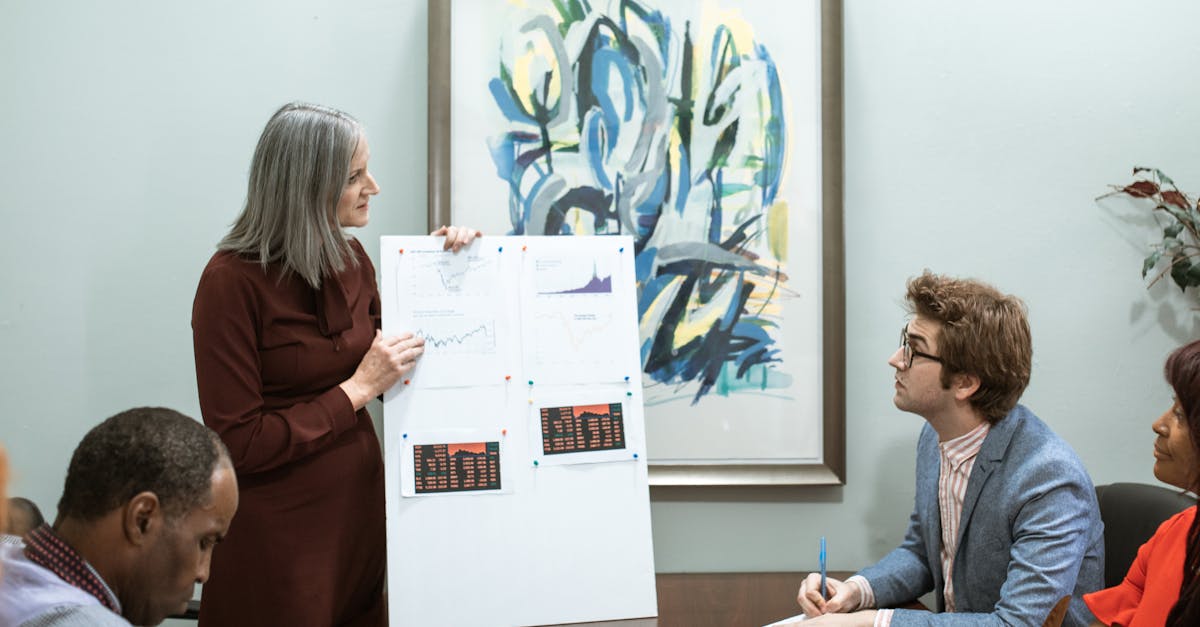
Table Of Contents
Fostering Continuous Learning
Fostering continuous learning within a leadership development plan is crucial for the growth and success of individuals and organisations. When seeking leadership development near me, it is essential to prioritise initiatives that support ongoing learning and skill enhancement. By creating a culture that values learning at all levels of the organisation, leaders can inspire their teams to continuously seek new knowledge and improve their abilities.
Organisations can promote continuous learning by providing access to various educational resources, such as workshops, seminars, online courses, and mentorship programs. By encouraging employees to proactively engage in learning opportunities, companies can foster a collaborative environment where individuals feel supported in their professional development journey. Embracing continuous learning not only enhances individual skills but also contributes to the overall growth and innovation of the organisation.
Promoting a Culture of Lifelong Learning and Development
An integral element of a robust leadership development plan is the establishment of a culture that values ongoing learning and growth. By fostering an environment where continuous development is not only encouraged but also celebrated, organisations set the stage for leaders to thrive and evolve in their roles. Leaders who actively seek out opportunities for growth contribute to creating an atmosphere where learning is seen as a catalyst for success rather than a one-time event. This proactive approach not only ensures the continuous improvement of individual leaders but also nurtures a culture where the pursuit of excellence becomes ingrained in the organisation's DNA. As a result, teams are better equipped to navigate challenges and seize opportunities with agility and resilience, positioning the organisation for sustainable success.
When considering Leadership Development near me, it is crucial to embed a dedication to lifelong learning within the fabric of the organisation. This commitment goes beyond merely offering training programs; it involves building a mindset that prioritises personal and professional growth at all levels. Through targeted initiatives such as mentorship programs, job rotations, and learning communities, organisations can empower leaders to take ownership of their development journey while fostering a sense of accountability for continuous improvement. By weaving the principles of ongoing learning into the cultural tapestry of the organisation, companies not only invest in the present capabilities of their leaders but also lay a solid foundation for future success and sustainability.
Cultivating Emotional Intelligence
Cultivating emotional intelligence is a crucial aspect of any leadership development plan. It involves enhancing self-awareness and relationship management skills to foster effective communication and build stronger connections with team members. By developing emotional intelligence, leaders can better understand and regulate their emotions, leading to more constructive and empathetic interactions in the workplace. This skill set is essential in creating a positive work environment and promoting collaboration among team members, ultimately driving success for the entire organization. If you are looking to improve your emotional intelligence and enhance your leadership capabilities, consider seeking out resources and programs for leadership development near me.
Enhancing SelfAwareness and Relationship Management Skills
Enhancing self-awareness is a fundamental aspect of effective leadership development near me. By developing a deep understanding of one's strengths, weaknesses, and values, leaders can better navigate challenges and make informed decisions. Self-awareness also fosters empathy and enhances communication, crucial skills for building strong relationships with team members and stakeholders.
Relationship management skills are essential for leaders to inspire and motivate their team effectively. By cultivating strong relationships based on trust and respect, leaders can create a positive work environment that encourages collaboration and innovation. Effective relationship management also involves conflict resolution and the ability to navigate difficult conversations with empathy and understanding.
Building Effective Communication Skills
Building effective communication skills is a crucial aspect of a well-rounded leadership development plan. Effective communication involves not only the ability to articulate ideas clearly but also to actively listen to others. As a leader, being able to convey your thoughts and vision in a concise and compelling manner can inspire and motivate your team towards a common goal. Moreover, fostering open communication channels within your team can lead to increased collaboration, innovation, and overall productivity. To enhance these skills, consider seeking out leadership development programs or workshops that focus on improving verbal and nonverbal communication abilities.
Leadership Development near me may offer courses or training sessions specifically tailored to honing communication skills in a professional setting. These programs often provide practical techniques and strategies for delivering impactful presentations, leading engaging meetings, and fostering constructive dialogue within a team. By investing time and effort in developing your communication skills, you can not only become a more effective leader but also build stronger relationships with your colleagues and stakeholders.
Improving Verbal and Nonverbal Communication Abilities
Improving verbal and nonverbal communication abilities is crucial for effective leadership. When interacting with team members, the way a leader communicates can greatly impact the clarity and understanding of the message conveyed. Leaders should aim to be concise yet comprehensive in their verbal communication, ensuring that their points are clearly articulated without room for misinterpretation. Additionally, paying attention to nonverbal cues such as body language, facial expressions, and tone of voice can further enhance the effectiveness of a leader's communication efforts.
Leadership Development near me can offer workshops and training sessions dedicated to improving communication skills. These programs often focus on active listening techniques, assertiveness training, and conflict resolution strategies to help leaders navigate challenging conversations with ease. By honing both verbal and nonverbal communication abilities, leaders can foster better relationships with their team members, inspire trust and confidence, and ultimately drive greater success within the organization.
FAQS
What should a good leadership development plan focus on?
A good leadership development plan should focus on fostering continuous learning, cultivating emotional intelligence, and building effective communication skills.
How can a leader promote a culture of lifelong learning and development?
A leader can promote a culture of lifelong learning and development by encouraging team members to seek out new knowledge, providing opportunities for training and growth, and leading by example in their own pursuit of personal and professional development.
Why is emotional intelligence important for effective leadership?
Emotional intelligence is important for effective leadership as it enhances self-awareness, relationship management skills, and the ability to empathize and connect with others, leading to better decision-making and stronger team dynamics.
What are some ways to enhance self-awareness and relationship management skills in a leadership development plan?
Some ways to enhance self-awareness and relationship management skills in a leadership development plan include self-reflection exercises, receiving feedback from peers and mentors, and participating in emotional intelligence training programs.
How can a leader improve their verbal and nonverbal communication abilities?
A leader can improve their verbal and nonverbal communication abilities by practicing active listening, honing their public speaking skills, seeking feedback on their communication style, and being mindful of their body language and facial expressions during interactions.


